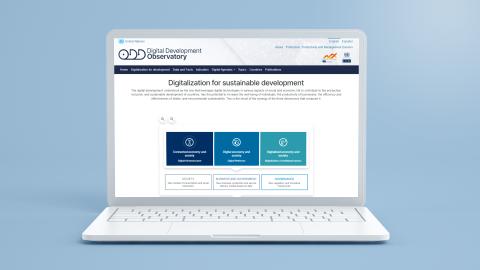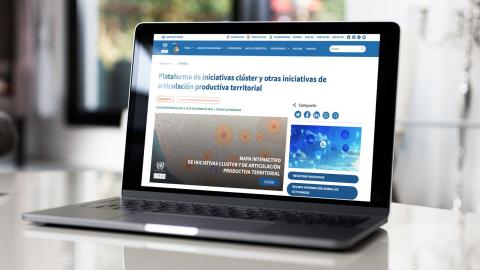Press Release
The fourth industrial revolution underway is forcing a rethinking of the role of micro, small and medium-sized enterprises (MSMEs) in Latin America and the Caribbean and requires policies that enable the development of capacities to successfully compete in today’s productive systems, which are characterized by their dynamism, experts agreed during a meeting organized by the Euromipyme project in Mexico City.
The Regional Seminar Latin America and Europe in the Face of Technological Disruption: A New Era of Policies and Institutions for MSMEs began today in Mexico with the participation of Susana Duque, Director General of Business Development Programs at the National Entrepreneurship Institute (INADEM) of Mexico; Rosario Paz, First Vice President of Bolivia’s Chamber of Industry, Commerce, Services and Tourism (CAINCO); Dirk Niehaus Meinert, Chair of the Board of Directors of EUROCHAMBRES; Klaus Rudischhauser, the European Union’s Ambassador to Mexico; and Mario Cimoli, Director of ECLAC’s Division of Production, Productivity and Management.
These representatives underscored firstly the importance of the Euromipyme project developed by the Economic Commission for Latin America and the Caribbean (ECLAC) and the European Union, which seeks to accelerate institutional learning regarding micro, small and medium-sized businesses. They also called for deeper cooperation between both regions, taking into account the rapid technological transformation seen in the world.
Furthermore, they cited the need to foster public-private dialogue to enable MSMEs to adopt new technologies and develop innovation in the context of Industry 4.0, dominated by cyber-physical systems, smart products and the rapid emergence of the Internet of Things, hyperconnectivity and big data.
“We are in a new stage in terms of the organization of production in the world,” stressed Cimoli during his presentation. Latin America and the Caribbean are returning to positive growth rates, but big challenges remain regarding investment and productivity, he said. “The lack of industrial competitiveness is reflected in significant trade deficits in machinery, equipment, intermediate inputs and consumer goods,” he indicated.
MSMEs account for more than 60% of jobs in Latin America and the Caribbean, but they are responsible for only 28% of Gross Domestic Product (GDP) and just 8.4% of exports.
“We lack a strategy of industrial promotion that defines the role of MSMEs in Latin America and the Caribbean. We need to foster the construction or consolidation of innovative production systems that integrate these businesses,” sustained Cimoli, adding that the building of smart cities – to name one catalyzing factor – can accelerate their digitalization.
More coordination is needed among policies aimed at MSMEs, in particular the promotion of exports, training and management support, the ECLAC official insisted.
During the event, which ends on Wednesday, October 11, emphasis was also placed on the role being played by advanced technology centers (ATCs) and public-private business development centers aimed at smaller enterprises.
The project “Better policies for micro, small and medium-sized enterprises in Latin America,” known as Euromipyme, seeks to improve policies for MSMEs at a national, subregional and regional level in the countries of Latin America to foster inclusive economic growth, generating increased productivity and reducing poverty.
The initiative encompasses 18 Latin American countries: Argentina, Bolivia, Brazil, Chile, Colombia, Costa Rica, Cuba, Ecuador, El Salvador, Guatemala, Honduras, Mexico, Nicaragua, Panama, Paraguay, Peru, Uruguay and Venezuela.



